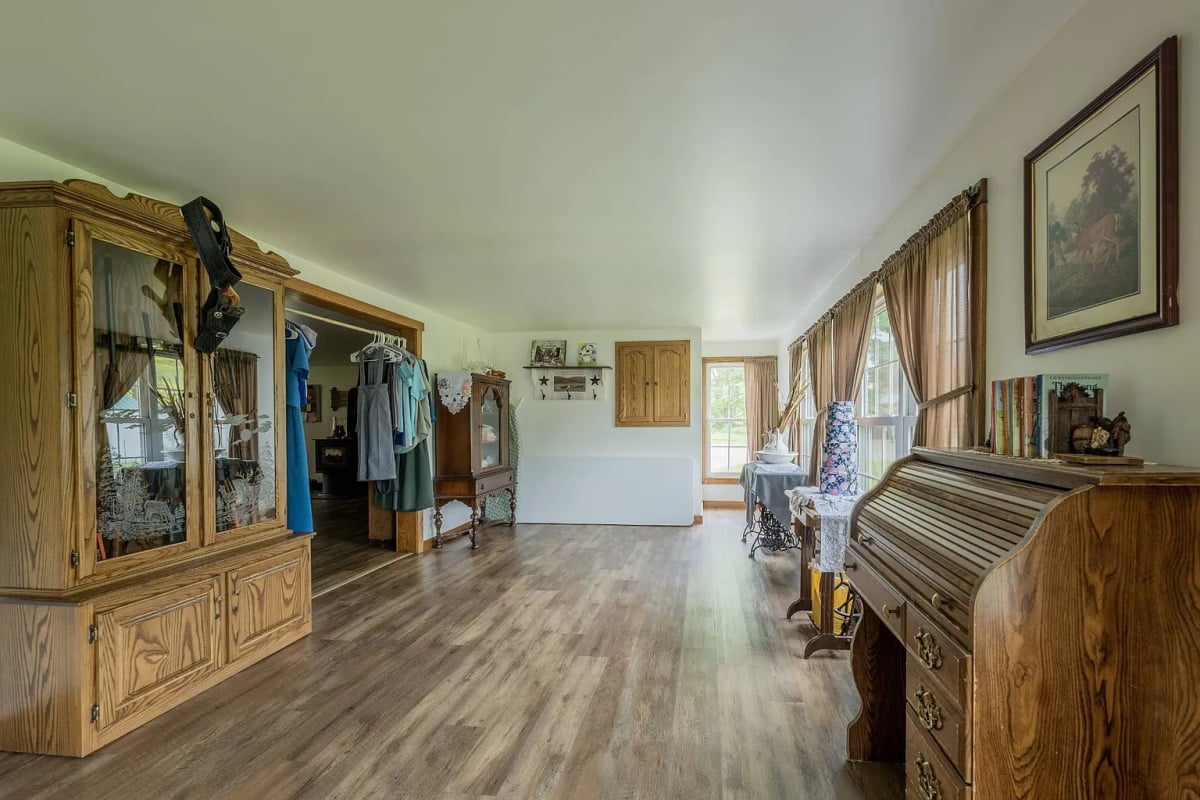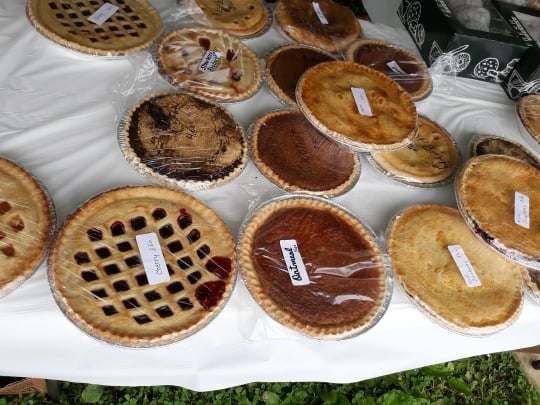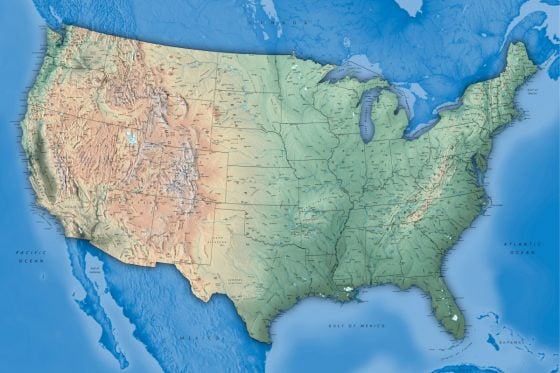Are The Amish Rich?
The Amish & Wealth
You usually don’t think “wealthy” when you think of the Amish. Their plain appearance seems to confirm this. Wearing austere clothing, living in simple homes, driving a horse-and-buggy instead of a sports car…that hardly suggests “affluent”.

Looks can be deceiving, however. You certainly do have Amish that are quite wealthy – even millionaires, many times over. This can happen in a couple of different ways.
Jump to:
Sources of Amish Wealth
Farms
Business Owners
What do Amish do with their money?
Amish wealth & Plain values
Will wealth change the Amish?
Sources of Amish Wealth
Now, a lot of Amish are not in the “wealthy” boat. There are poor Amish people, technically living below the poverty line. Most Amish would be what you would call “middle class”. So don’t get the idea that the Amish are secretly all super-rich people.
But the Amish do have their fair share of wealthy members of their communities. And there are two primary ways by which they achieve their wealth. So let’s have a closer look at how Amish become rich, and what they do with their money.
Wealthy Amish Landowners
So the first example would be Amish who own land worth millions of dollars.
These are typically farmers that have the bulk of their wealth tied up in the non-liquid asset of agricultural acreage. These are often farms that may have been in a family for generations, and are passed down from father-to-son.

The best example of this would be Lancaster County, Pennsylvania, where the land prices have gotten extremely high. Despite having a reputation as a rural area, there are a lot of people living in the county (approximately a half-million, mostly non-Amish people living in the county) – and a lot of residential development there. This has driven up the price of land in recent years. So the farms you see in Lancaster County are often million-dollar or multimillion-dollar possessions.
An Amish farmer sitting on land worth millions is not the same as a person with millions of dollars in a bank account. He’s not likely to sell his land but rather keep it in the family, for one of his sons to farm. If the farm is paid off, it is a great advantage. A farm represents a way of making a living which keeps family together and helps Amish instill values into the next generation. From an Amish perspective, that can be worth more than millions of dollars. A common sentiment you’ll hear expressed by Amish people: “the only treasure we can take with us to heaven is our children.”
Wealthy Amish Business Owners
The second situation where this typically happens is due to business success. This is where you’re seeing more and more wealthy people among the Amish.
This case also relates to the land pressures in the number of Amish communities. And that’s not just Lancaster County, but other large communities, where people are not able to farm as easily due to not being able to acquire land.
So for decades now you’ve had small business being a popular way that Amish make a living. A furniture workshop or other at-home venture does not require many acres of land. There are common trades and skill sets which Amish can easily acquire from other in their communities.

The Amish typically have an eighth-grade education. So they’re not becoming lawyers and doctors and working in high-tech industries. However, this doesn’t mean the Amish aren’t intelligent or capable. Some Amish do understand quite a bit about technology, and some are quite brilliant at things in terms of engineering and mechanics.
But with Amish typically you find trades like manufacturing-type businesses – things like woodworking, furniture making, cabinet shops, metals, construction, carpentry, and so on. Amish are involved in running some food businesses, like market stands, cheese houses, and other food production (though restaurants are not too common).
And it’s not just Amish men. Amish women run fabric shops, make quilts, operate dry goods and variety stores, and other home enterprises. Generally the Amish tend to have success in all of these types of businesses.
There are different reasons for that. Some credit goes to the Amish work ethic. Some of it is a cultural emphasis on quality (that doesn’t guarantee that “Amish-made” always means “high-quality”, but it’s usually a good sign). Some of their success also stems from essentially tapping into the collective resources of the community – the labor force, the trade knowledge, opportunities for apprenticeship and on-the-job learning, as well as marketing benefits from the Amish “brand”. I wrote a whole book about this, so I’m not going to get too long-winded on the topic here.
The point is that there definitely are Amish that have become millionaires, and multi-millionaires, in many cases due to business success.
What do Amish do with their money?
So what are the “rich Amish” doing with their wealth? Amish people use their money in different ways. Some buy land for farming or to build a home upon. Some buy hunting land. Some help their children to buy farms. Other Amish invest their money in more traditionally “English” (the Amish word for “non-Amish”) ways – like mutual funds, stocks and other investment assets.
The Amish tend not to flaunt wealth – at least not in ways that stand out to non-Amish eyes. Even among the Amish – and we may not notice these things as readily – some people will have nicer material goods. This is seen in the quality of their buggies (Amish buggy makers offer a variety of features), or the type of fabric used to make dresses. Amish may purchase expensive bicycles, or hunting gear, or birding equipment (birding is a popular pastime for many Amish people).

Certainly, you may notice Amish wealth in the type of home they build or purchase. It will still be “Amish” in that it doesn’t have a public electric grid connection. But the materials used, design, landscaping, and other features will reflect a higher level of financial achievement. Amish homes generally follows certain styles. But some Amish homes definitely have a fancier appearance than others. Of course, there is also the size of the property to consider.
There are other places Amish display material wealth. For example, you can see it in how big and nice of a barn they build, or by the type of buggy horse they drive (some Amish horses can be quite expensive). Amish spend and invest their money in certain ways. But it’s not going to be as readily visible to “English” eyes. However, Amish eyes will pick up on it.
“Rich Amish” & Plain values
How does wealth fit in with Amish Plain Christian values? This is part of the reason behind having a uniform, plain clothing style, the same types of buggies, and generally the same homes and styles of furnishings in a given community. Many of these borders are understood, though some are outlined in the church’s Ordnung (rules and guidelines for daily life, reviewed by the congregation twice each year).
This does help to preserve a sense of equality among members of the church. Material restrictions help discourage envy – and encourage humility.
Amish Christian values are not about trying to stand out and show everyone, in an obnoxious way, how much money you’ve made. It’s more about loving your brother, and taking care of others in the community. The Amish are not perfect, and some stray from this picture. But that is the ideal that they are consciously trying to live up to.
Ultimately, Amish Christian values emphasize that this life is not about accumulating wealth for wealth’s sake. True riches lie elsewhere – in God’s kingdom – in the Amish perspective.
Helping the community
There’s one more thing which wealthier Amish will do with their money. Many of the more financially-fortunate Amish people will help out to a greater degree when there are medical bills in the community that need to be paid. This becomes a necessity, because due to religious beliefs, the Amish don’t carry conventional medical insurance.

Amish have some of their own internal insurance-like plans, in some communities. But in many cases, you’re going to have needs that exceed what can be paid in traditional ways. So some of the richer Amish individuals will step in to help out with these extraordinary needs.
Amish Millionaires
So there are Amish millionaires out there. You’re just not going to be able to tell them as easily as you might think you can tell the non-Amish millionaires. And on that note, some Amish people have felt concern over the growing class differences within Amish society.
Fifty years ago, when nearly all Amish were farmers, there was less of a wealth disparity among the Amish. People were more or less on the same financial level. Of course there were some who did better than others. But the gaps were not as great.
Will wealth change the Amish over the long haul? There is some concern among Amish about where the current wealth differences might lead. Will a material life spoil the Amish? Will fat-cat Amish business owners hold more influence in Amish churches than the bishops and ministry? These questions remain to be answered over the long term.
However, the fact that Amish preserve outward signs of equality like clothing and style of transportation, and maintain common church rituals like foot-washing at Communion service, and home worship, are encouraging signs. These aspects of Amish life help to preserve a sense of equality and humility among those Amish who have achieved great financial success.






Amish with money
In my travels I have encounter several Amish/OOM with substantial worth other than traditional land ownership. Amish owned construction businesses are one standout. A roofing company in business for 15 years, a prefab cabin building venture, a high end custom cabinet company and three pallet building companies are among the ones I know.
One pallet maker owner spends his cash by caring for fellow Amish who are disabled. He owns a custom made bus size vehicle where he/wife care for and transport his charges. He attends almost every Amish benefit auction and takes his “family” on tours to enhance their life quality. We recently crossed paths at the Mt Pisgah Altar in Snyder County. They had a picnic lunch and telescopes for countryside viewing. He mentioned that two of his charges have jobs at a local Amish bakery.